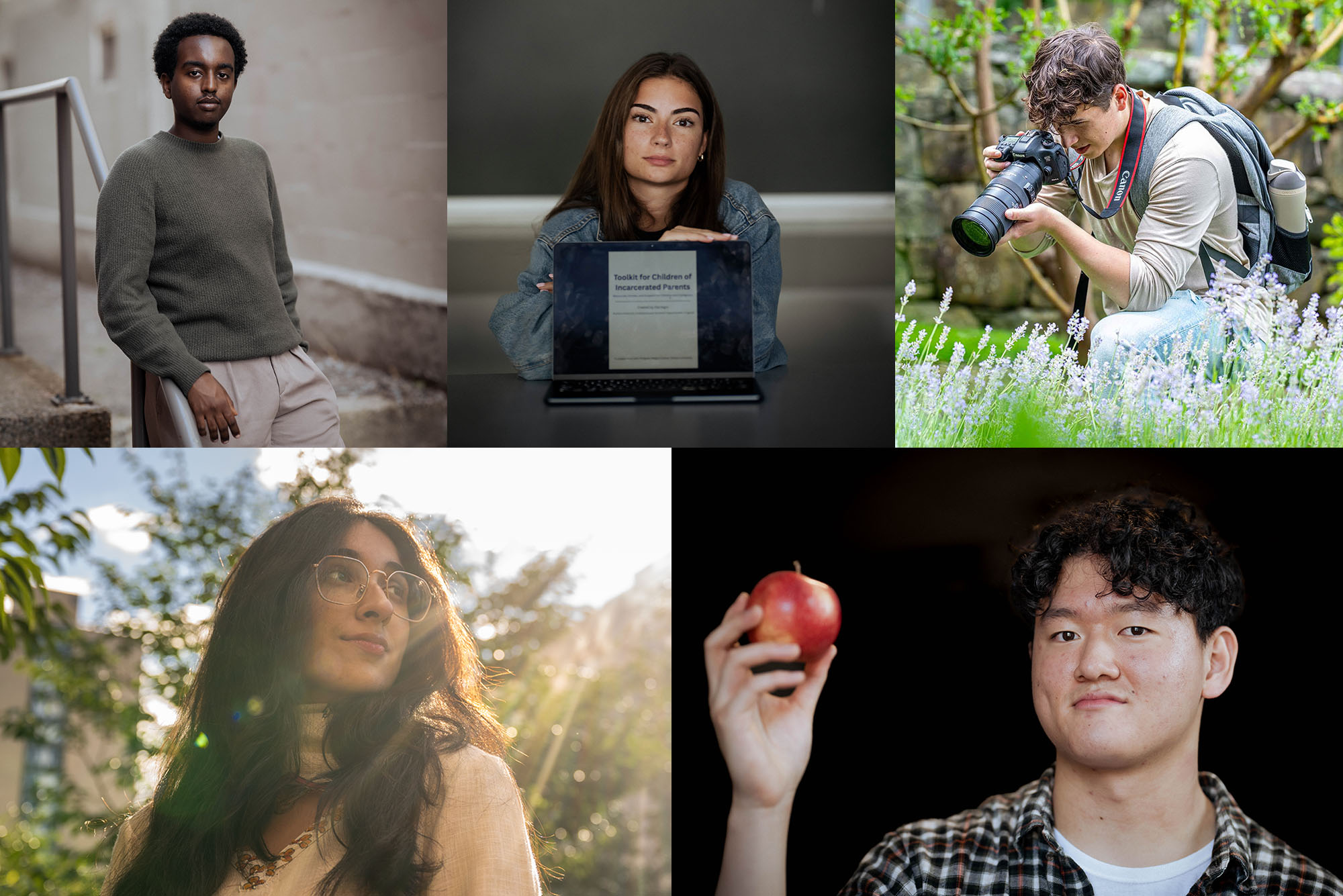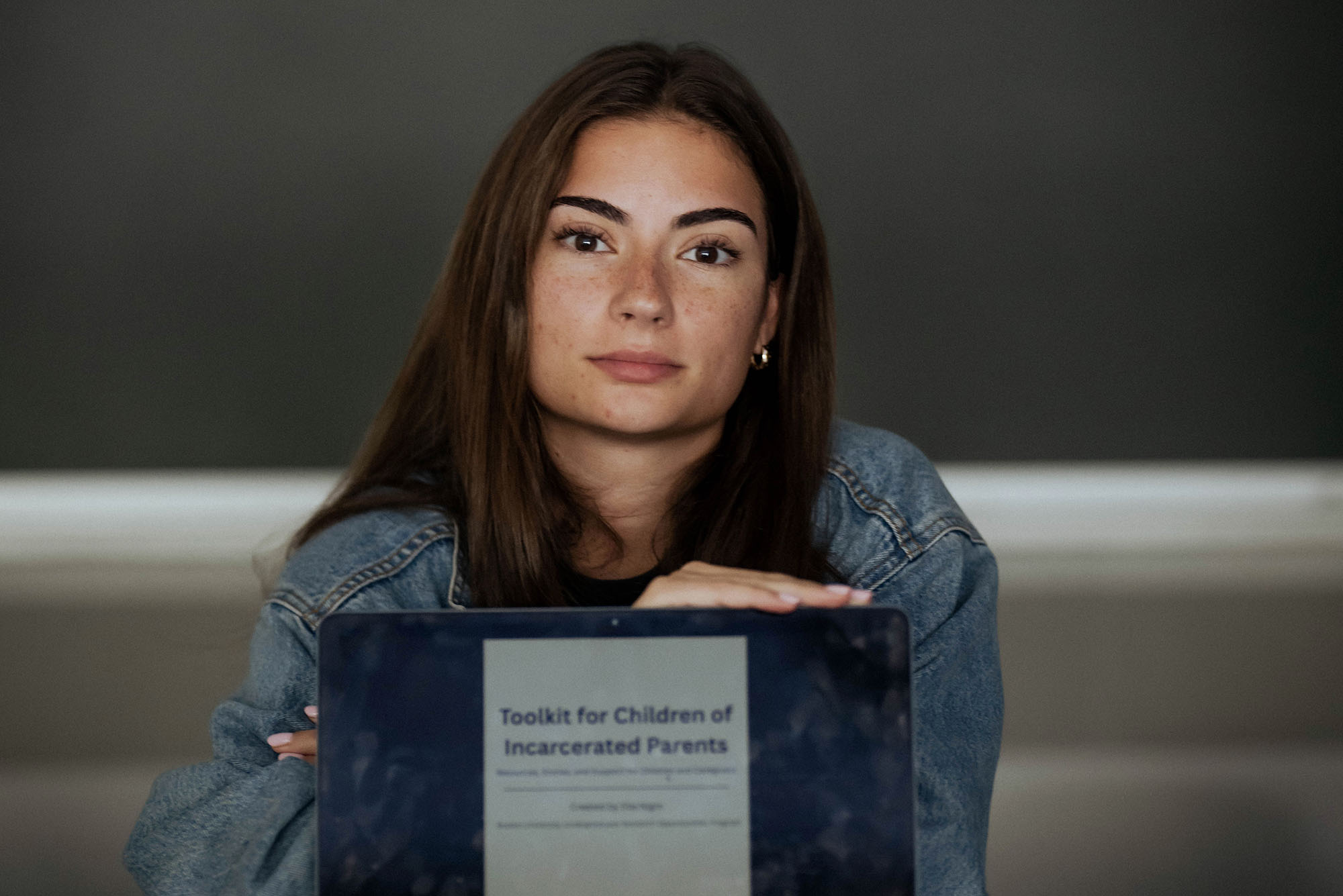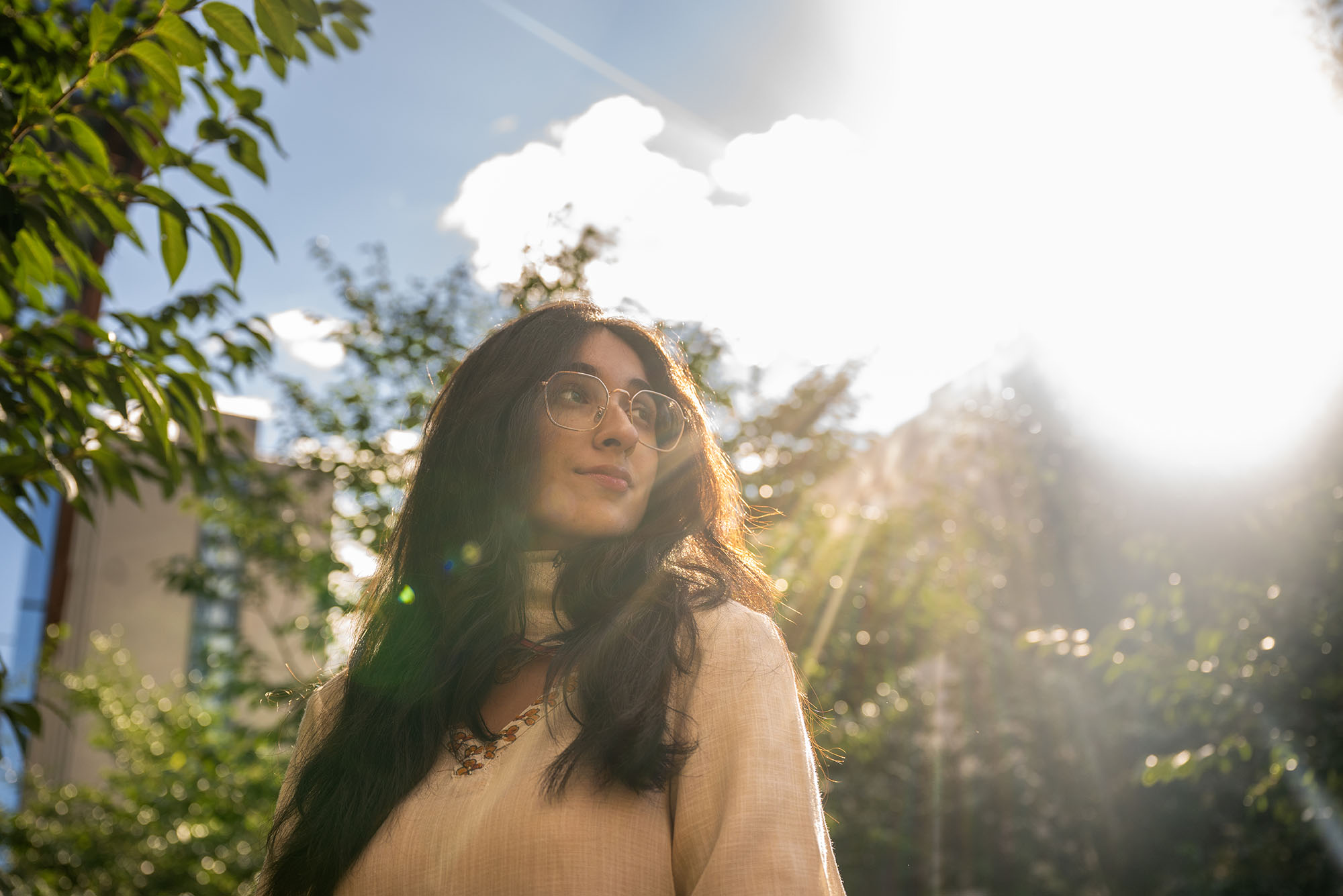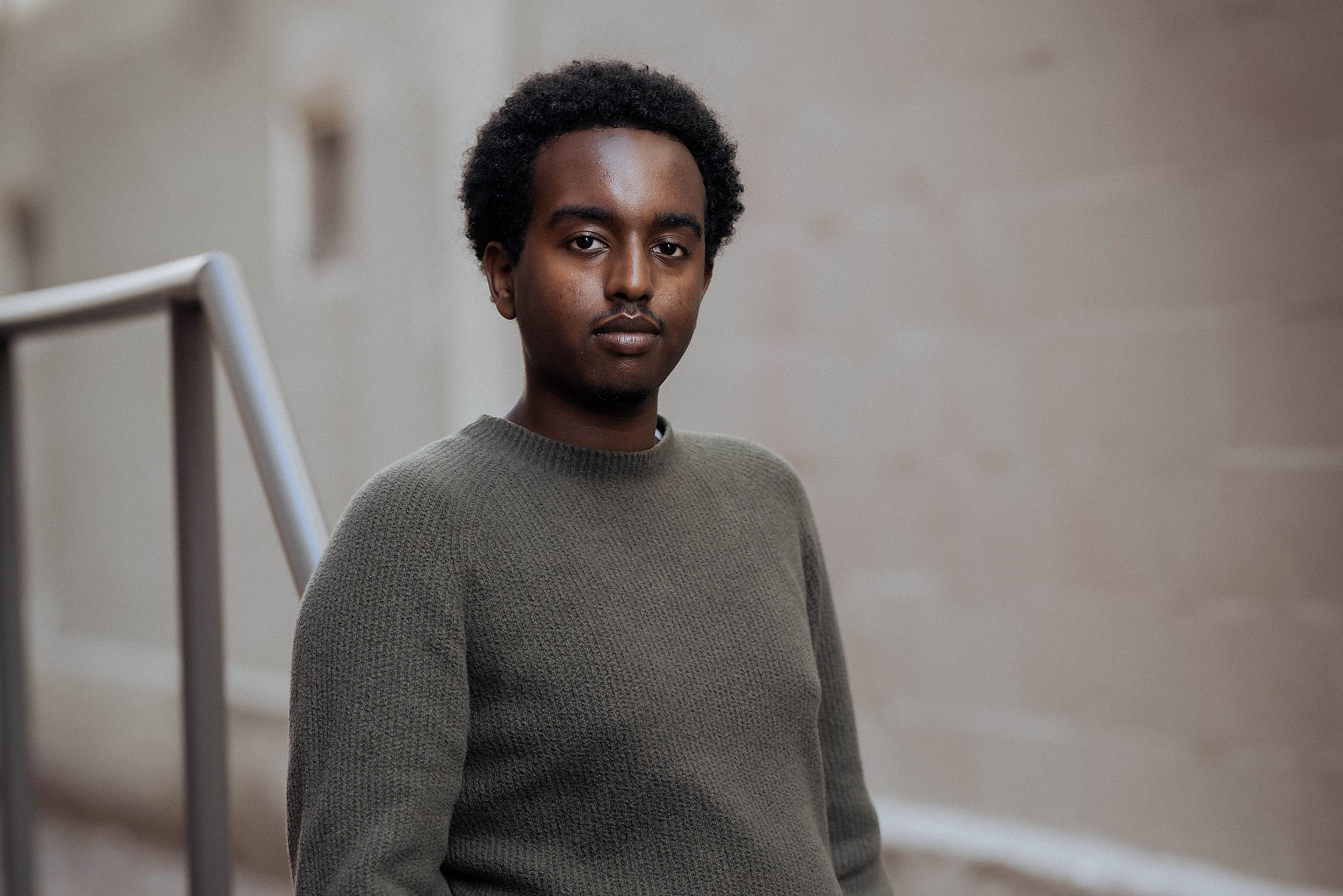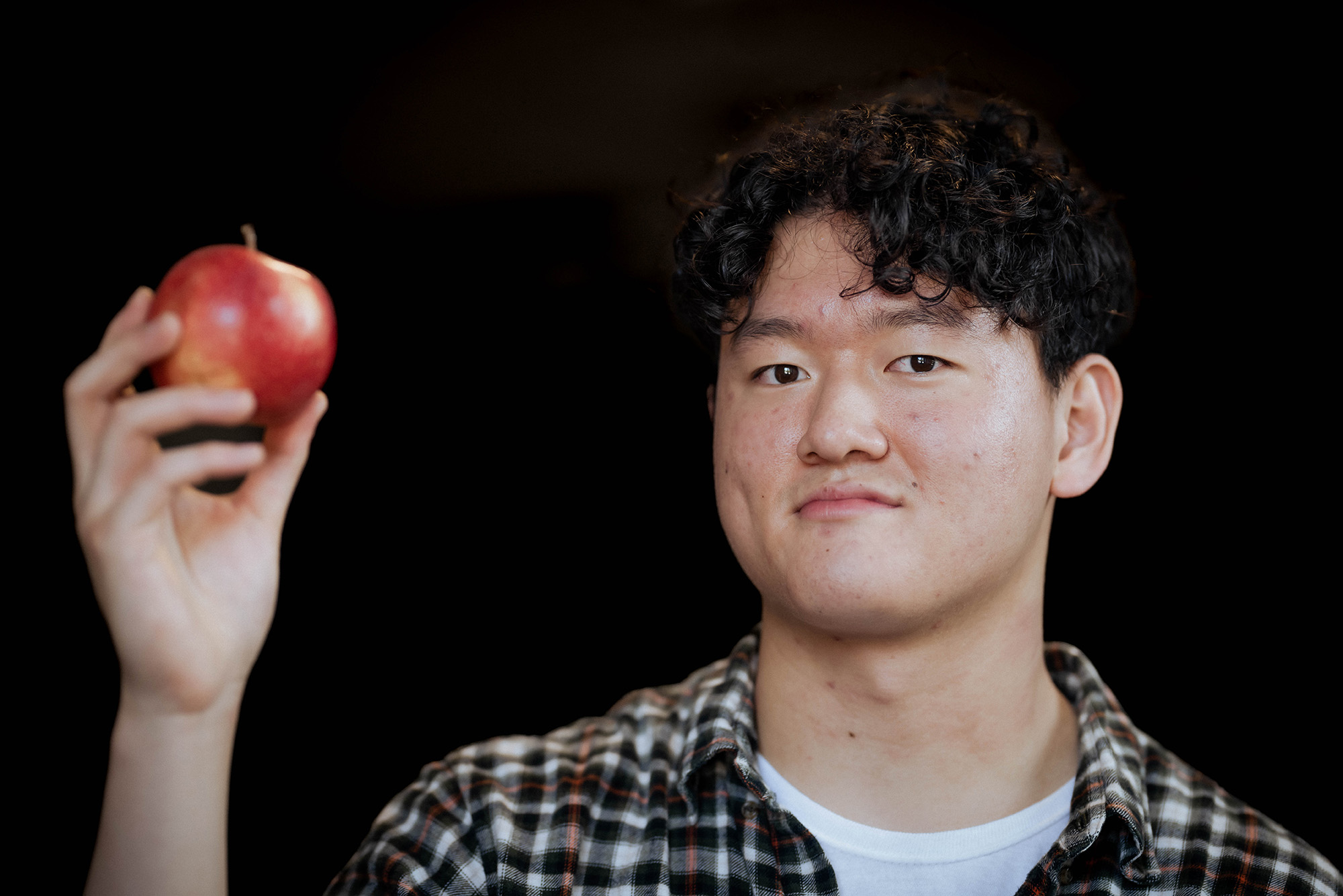BU Undergrads Making a Difference Through Research For more than 25 years, Boston University students have been spending time in the lab and out in the field, doing research projects alongside faculty mentors, learning how to design studies and analyze data, and offering new ideas and insights on a range of scholarly subjects. They are part of BU’s Undergraduate Research Opportunities Program (UROP), which has provided them with funding—between $750 and $6,000 per semester—to look under the hood of a particular topic. In the program’s first year, 1998, the University awarded 58 grants; in 2024–2025, that number had grown to 578.
Melissa Johnson, UROP’s director, says the students provide meaningful contributions to faculty research. At the same time, she says, the mentors get the opportunity to train, teach, and inspire the next generation of research scholars.
“UROP also helps Boston University attract and retain top undergraduates,” Johnson adds, “many of whom are drawn to the distinctive opportunity to engage in paid, faculty mentored research,” across BU’s campuses and disciplines—from African American studies and history to neuroscience and sociology. Here, students describe the UROP-funded research projects they recently were involved in, and what the work meant to them. —Rich Barlow
Matteo Finnerty (CAS’27), at the Arnold Arboretum this past summer, was introduced to his research project by CAS biologist Richard Primack. Photo by Sheila Barrett
Declining Bumblebee Species In the 1920s, BU professor Otto Plath—a biologist and the father of poet Sylvia Plath—studied insects at the Arnold Arboretum in Boston’s Jamaica Plain neighborhood, where he observed 13 different species of bumblebees. A century later, a team of BU researchers has found only four different types of bumblebees at the arboretum, including one that is considered extremely rare.
Read More
Close
The decline in bumblebee species buzzing around one of Boston’s biggest green spaces reflects global reports of a dramatic decrease in insect diversity, including among native pollinators, says biology student Matteo Finnerty (CAS’27). Bostonia caught up with Finnerty this past summer, while he was working with a research team conducting fieldwork at the arboretum.
There’s been increasing concern that honeybees—brought to North America by European settlers in the 17th century—have been outcompeting native pollinators, including their larger, fuzzier bumblebee cousins. Honeybees are now an essential part of American agriculture. But the stark fall in the number of native bumblebees and other pollinators could have serious negative ripple effects, impacting crops and wider ecological diversity.
“The broader implications extend to entire ecosystems and human agriculture,” says Finnerty. “Pollinators are essential for plant reproduction, and many of the foods we rely on.” Richard Primack , a College of Arts & Sciences professor of biology. Known for his work using Henry David Thoreau’s notebooks to study climate change at Walden Pond in Concord, Mass., Primack was inspired to pursue this new line of inquiry after rediscovering Otto Plath’s insect observations.
“What sets this research apart is that we’re looking at competition between honeybees and native bees in the context of woody plants—a less-studied area,” says Finnerty. “We want to find out whether they’re competing for the same floral resources, like nectar and pollen, and whether that competition mirrors what’s been seen with herbaceous plants.”
During sunny days, the team conducted its research by performing five-minute observations on different plants to determine which pollinators visited them, and if the pollinator collected nectar or pollen.
“If we find strong evidence of competition, that could support arguments for reducing the number of honeybee hives in the Boston area,” says Primack. “And if we identify specific plants that native pollinators prefer, we can encourage planting more of those to support their populations.”
“If we find strong evidence of competition, that could support arguments for reducing the number of honeybee hives in the Boston area,” says Primack. “And if we identify specific plants that native pollinators prefer, we can encourage planting more of those to support their populations.”
—Kayla Baltazar (COM’27)
Click here to watch a video of Matteo Finnerty conducting his research this past summer at the Arnold Arboretum
The tool kit created by Ella Nigro (COM’26, CAS’26) combines book lists, worksheets, writing prompts, and a list of resources. Photo by Jackie Ricciardi
Help For Children With Incarcerated Parents Being a child with an incarcerated parent can be lonely and confusing. It’s something Ella Nigro knows personally. Nigro (COM’26, CAS’26) spent most of her childhood and adolescence with an incarcerated father. Unlike a child whose parent has cancer, for example, there aren’t a lot of places where kids can turn to for help processing the experience.
Read More
Close
“Incarceration ripples into every part of a child’s life, school, friendships, and identity,” says Nigro. “You’re constantly negotiating between being angry, missing your parent, feeling protective of them, and trying to make sense of a system that feels larger than you. I’ve always felt the absence of resources for children navigating that reality.”
So when Nigro had a chance to address the resource gap, she took it. She spent the past summer creating a free tool kit for Massachusetts public school children who have incarcerated parents. The K-12 tool kit combines age-appropriate book lists, worksheets, and writing prompts, plus a list of resources for caregivers and educators to help support children in their care. The tool kit is available to download through OpenBU , the University’s open-access repository. Nigro is working to share it with schools, libraries, social workers, and families.
It was important to Nigro to create a child-centered offering, she says. Many of the existing resources around parental incarceration that she found were tailored to teachers and parents. Nigro spent hours reading relevant youth literature to curate her book lists for elementary, middle, and high school readers. The activity guides she designed address themes like emotional resilience, such as a worksheet for younger children in which they identify people they can tap for support. A writing prompt for teens explores the stigma around incarceration, asking them to reflect on how the criminal justice system is portrayed in the media and how their family’s experience compares.
“My inspiration for the project was centered around specific resources I wish I had access to when I was in elementary, middle, and high school,” Nigro says. Her resources build on research by Megan Sullivan , a College of General Studies associate professor of rhetoric, whose interests include parental incarceration and education. (A children’s book by Sullivan, about a young girl adjusting to her dad returning home from prison, is included in Nigro’s reading list for elementary schoolers.) Nigro worked as a research assistant to Sullivan during the spring 2025 semester; Sullivan was her UROP mentor. Nigro says the tool kit bridges academic research, policy, and lived experience. She designed each resource based on child development and pedagogical frameworks.
“By combining storytelling, creative exercises, and evidence-based strategies, this project not only offers immediate support to affected children but also invites institutions to take their educational and emotional wellbeing seriously,” Nigro wrote in her tool kit’s abstract. One of her biggest take-aways from the project was recognizing the silence and shame that often surrounds having a parent in prison.
“Even in academic spaces, there’s often little focus on the lived experience of children,” Nigro says. “Working on this project showed me how powerful it can be to give language and resources to kids who are often left to navigate stigma alone.”
—Alene Bouranova
Sharleen Kaur Sandhu (CAS’27) says creating a website on the history of the Sikhi faith gave her a personal and emotional education. Photo by Cydney Scott
A History Of Sikhi Arriving at BU after growing up in Hong Kong, Sharleen Kaur Sandhu met people who wanted to know more about her faith as a Sikh—a follower of Sikhi, a monotheistic religion founded six centuries ago in India. She also crossed paths with other Sikhs who knew more about the faith than she did.
Read More
Close
“‘Ambushed’ might be a strong word,” says Sandhu (CAS’27), “but I just felt like people wanted to try to invalidate my identity because I didn’t know enough.” It was a novel experience for someone who’d attended an international high school back home, where “no one ever made anyone feel invalid for being wherever they were from.”
She told Benjamin Siegel , a scholar of South Asia and a CAS associate professor of history, that she wanted to create a course at BU about Sikhi (the more common “Sikhism” was coined by India’s British colonizers, Sandhu says). He suggested that she start with a UROP project.
With Siegel as mentor, she created a website, Historical Sikhi (historicalsikhi.weebly.com ), a 12-week curriculum in the history of the religion from its 10 founding gurus through colonialism and Sikhs’ role today as adherents of one of the world’s largest faiths. The site is intended for use by anyone interested in learning about the faith’s history—”the people, cultures, ideologies, and events,” Sandhu says.
“I want to get [it] as accessible as possible,” she says. “If you’re just a group of friends who want to learn more about Sikhi, because you’re lacking in that knowledge, you could meet once or twice a week, however many times you want. It could be informal classes led by clubs at school and in different colleges.”
Research to create Historical Sikhi began with a textbook provided by Siegel, The Oxford Handbook of Sikh Studies , and skills that Sandhu had learned from her Historian’s Craft class, a required workshop for history majors such as herself. Then, she scoured databases and searched Sikh books. She took a trip on her own dime to the Indian state of Punjab, where Sikhi was founded, touring museums and temples, including the Golden Temple, Sikhi’s most sacred shrine.
Aside from the intellectual plunge into Sikhi that UROP provided, Sandhu says the project gave her a personal, emotional education—like when she talked to her parents about the 1984 massacre of Sikh pilgrims and separatists in Punjab by India’s government. “That was the first time I actually heard about it,” she says. “They were less than 10 years old at this time. But they have older relatives, older friends, who had lived through it.”
She also learned that “it is, first and foremost, wrong to be invalidating other people and saying, ‘You’re not Sikh enough. Learning all of this [through UROP], it made me feel so much more confident in myself and how I present myself and who I am.”
—Rich Barlow
Wahaaj Farah (Sargent’26) wondered what stress a background like his might impose on college students. What he found surprised him. Photo by Jackie Ricciardi
The Impact Of Neighborhood Deprivation “I came from an economically disadvantaged background,” says Wahaaj Farah. His Somali parents immigrated here in 1995, and he was raised in neighborhoods where “there weren’t a lot of knowledge and resources.” Personal experience fathered a research passion when he came to BU; he wondered what stress a background like his might impose on college students.
Read More
Close
“How much money am I going to make this next week so I can buy food?” says Farah (Sargent’26). “It can be housing [issues].” Being underprivileged may also be a blow to self-confidence when it comes to academics, he adds: “[Did] my school prepare me to get to where I need to go” in college?
Farah’s UROP project, mentored by Karin Schon (GRS’05), an associate professor of anatomy and neurobiology at BU’s Chobanian & Avedisian School of Medicine, began in the spring semester, when he and her lab team collected interview and survey data from 13 Black college students in Boston, most of them at BU. The research put participants through a battery of questionnaires, using structured interviews. As stress can impair a person’s recall, participants also took the Mnemonic Similarity
Task, which tests the hippocampus, a part of the brain essential to memory. He spent the summer analyzing the findings, which surprised him: The higher stress levels among disadvantaged students weren’t statistically significant compared to better-off peers. Farah attributes the result to the small number of participants, and he hopes to pursue the research further with Schon’s lab.
“I think that we need to get a larger sample size,” he says, “looking into not just BU, but also surrounding schools, to recruit more students from different economic backgrounds.” Farah has worked in other research settings—at the Sandra L. Fenwick Institute for pediatric care at Boston Children’s Hospital and at the London South Bank University. But UROP was special, he says.
He learned new skills, such as the R computer programming language. The project involved young people with backgrounds similar to his own: “As I’m interviewing these participants, I’m getting a piece of their story. We’ve asked really tough questions…about their mental health.”
Farah is considering postgrad research opportunities. “UROP gave me the opportunity to kind of take that into my own hands and be like, ‘Okay, what are you going to do?” he says. “What can we do, in these 10 weeks, that is interesting to you, but [by which] you also learn some skills?”
—Rich Barlow
Lukas Shan (CAS’26, Sargent’26) is helping to develop a tool that will allow healthcare profes-sionals to help their patients improve their fiber intake. Photo by Jackie Ricciardi
Tracking Fiber In Our Diets Fiber is a nutrient found primarily in the plant-based foods we eat—fruits, vegetables, nuts, seeds, and legumes. Its benefits include improved gastrointestinal health and metabolic regulation, weight management, and reduced risk of various cancers and chronic diseases like heart disease.
Read More
Close
But chances are we’re not consuming enough of it—and Lukas Shan is aiming to fix that. “[Fiber] is a very crucial nutrient for optimal dietary health,” says Shan (CAS’26, Sargent’26). “But currently, Americans are falling short pretty considerably in terms of their fiber intake. And because fiber has been shown to have such a wide variety of benefits, we want to specifically focus on improving intake in the public.”
For his UROP project, Shan is helping to develop a tool that will allow healthcare professionals to help their patients track and improve their fiber intake. He’s working with Nicola McKeown , a research professor in health sciences at Sargent College of Health & Rehabilitation Sciences, and her Diet Quality and Healthy Aging Lab.
Currently, the tracker exists in the form of a Qualtrics survey that asks users to answer questions about their diets and then calculates their approximate fiber intake based on the responses. It is not available to the public. Shan says the next step is to put the tracker into a mobile app.
“To our knowledge, there really isn’t a tracking app out there that specifically focuses on fiber alone,” he says. He and the rest of the team recently met with the BU Software & Application Innovation Lab , housed in the Duan Family Center for Computing & Data Sciences , to discuss the development of a prototype of the app.
Shan says that the development of the app has been one of the more difficult parts of the project. “I don’t have much experience with software development,” he says. “So coming up with the features that we want to see in this app has been kind of challenging. There’s a lot of things that we need to consider and a lot of moving pieces.”
The research and development process has been eye-opening. “It’s really all about perseverance,” says Shan. “I’m going to keep working toward this with the rest of the team to bring this to fruition so that I can actually benefit the public and people in the community.”
—Bailey Scott (COM’26)
To see how BU research is transforming lives—and to support student research with a gift—click here .
